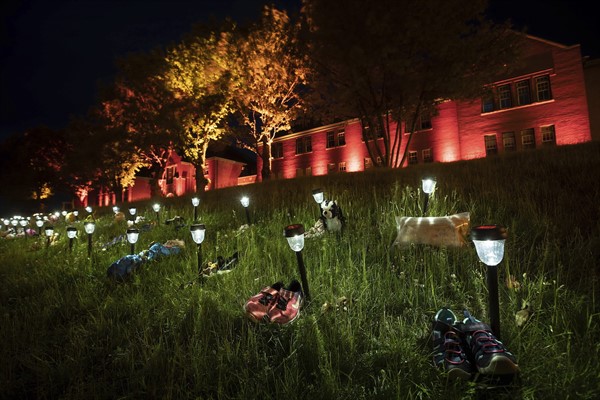Four months ago, the Tk’emlups te Secwepemc First Nation in Canada made international headlines when it announced it had discovered 215 unmarked graves near the former Kamloops Indian Residential School in British Columbia. The next month, the Cowessess First Nation announced a similar finding of 751 unmarked graves near Marieval Indian Residential School in Saskatchewan. A further 160 were soon found at the site of Kuper Island Residential School, near Vancouver, with many more Indigenous communities taking up their own searches for similar sites.
Secwepemc community members, as well as others from communities mounting their own searches, were quick to note that these discoveries were just the beginning: More were sure to follow. From the mid-19th to late 20th century, Canada’s residential schools separated roughly 150,000 Indigenous children from their families and transferred them into a network of more than 130 boarding schools, most of which were government-funded and run by Christian churches. The intent was to “civilize” Indigenous children through a forced assimilation program, after which, it was assumed, they would eventually blend in with the non-Indigenous society.
In simple terms, the approach included many of the defining elements of genocide listed in the United Nations Genocide Convention, including killing members of the group, causing serious bodily or mental harm to its members and forcibly removing children from their care. Indigenous children at many of these schools experienced rampant abuse, unsafe infrastructure, malnutrition and even forced medical experimentation, leaving survivors with painful mental and physical scars—assuming they made it out at all.

